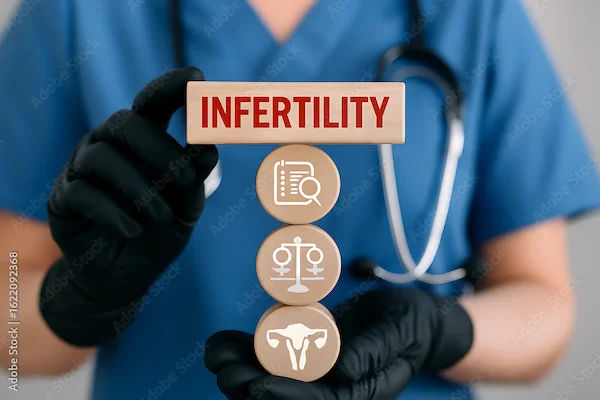Wheat Benefits
Explore the health benefits of wheat, including improved digestion, heart health, weight management, and immunity. Learn how to incorporate whole wheat into your diet for better health.

Written by Dr. Sonia Bhatt
Last updated on 13th Jan, 2026

Introduction
Wheat is one of the most widely consumed grains in the world, and for good reason! Packed with essential nutrients, it plays a vital role in maintaining good health. Whether you enjoy it as whole wheat bread, rotis, or pasta, incorporating wheat into your diet can offer numerous benefits. Let’s explore why wheat is so good for you and how you can make the most of it.
Why Is Wheat Good for You?
Wheat is a rich source of:
Fibre – Aids digestion and keeps your gut healthy.
Proteins – Essential for muscle growth and repair.
Vitamins (B1, B2, B3, B6, and E) – Support energy levels and skin health.
Minerals (Iron, Magnesium, Zinc, Phosphorus) – Strengthen bones and boost immunity.
Antioxidants – Help fight inflammation and chronic diseases.
Top Health Benefits of Wheat
Wheat offers a variety of health advantages when consumed in its whole form. Here are some key benefits:
1. Supports Digestive Health
Wheat, especially whole wheat, is high in dietary fibre, which prevents constipation, promotes regular bowel movements, and supports a healthy gut microbiome.
2. Boosts Heart Health
The fibre in wheat helps lower bad cholesterol (LDL) and reduces the risk of heart disease. Whole wheat also contains antioxidants that protect blood vessels.
3. Helps Manage Weight
Fibre keeps you full for longer, reducing unnecessary snacking and aiding in weight management. Whole wheat foods have a lower glycemic index, helping control blood sugar spikes.
4. Strengthens Immunity
Wheat contains zinc and selenium, which enhance immune function, helping your body fight infections more effectively.
5. Provides Long-Lasting Energy
The complex carbohydrates in wheat release energy slowly, keeping you active and preventing sudden energy crashes.
6. Supports Bone Health
Magnesium and phosphorus in wheat contribute to strong bones and teeth, reducing the risk of osteoporosis.
7. May Reduce Diabetes Risk
Whole wheat helps regulate blood sugar levels, making it a great choice for those with or at risk of type 2 diabetes.
Consult Top Specialists for Personalised Usage Tips
How to Include More Wheat in Your Diet?
Adding wheat to your meals can be easy and beneficial. Here are a few simple ways:
Swap refined grains for whole wheat – Choose whole wheat bread, pasta, and flour instead of white flour products.
Enjoy whole wheat rotis or chapatis – A staple in Indian diets, these provide sustained energy.
Try wheat-based breakfasts – Oatmeal, whole wheat pancakes, or wheat bran cereals are great options.
Snack smart – Opt for whole wheat crackers or homemade wheat-based snacks.
Who Should Be Cautious with Wheat?
While wheat is highly nutritious, some people may need to limit or avoid it:
Those with celiac disease or gluten intolerance – Wheat contains gluten, which can cause digestive issues in sensitive individuals.
People with wheat allergies – Symptoms may include rashes, swelling, or breathing difficulties.
If you suspect any intolerance, consult a doctor before making dietary changes.
Final Thoughts
Wheat is a powerhouse of nutrients that can significantly improve your overall health when consumed as part of a balanced diet. By choosing whole wheat over refined grains, you can enjoy better digestion, heart health, and energy levels.
If you have specific dietary concerns or need personalised advice, consider consulting a nutritionist. You can easily book an appointment with an expert on Apollo 24|7 for guidance tailored to your needs.
Consult Top Dieticians
Consult Top Dieticians

Ms. Sushma Jaiswal
Dietician
42 Years • M.Sc.(Food & Nutrition)
Bengaluru
Swasthya Nutrition, Bengaluru

Ms Malabika Datta
Dietician
19 Years • Bsc (Clinical Nutrition & Dietetics), Msc (Dietetics & Food Service Management)
Kolkata
Malabika’s Diet Clinic, Kolkata

Ms. Neelanjana J
Dietician
5 Years • Bsc., Msc. Nutrition and Dietetics specialised general weight management, PCOS/PCOD weight loss and Diabetes management. A clinical dietitian with 4+ year experience specializing in evidence-based, result-oriented nutrition therapy. I have extensive experience in weight loss, thyroid management, PCOD/PCOS, weight gain, and diabetes & prediabetes care. My approach is personalized, practical, and sustainable—focusing on helping individuals achieve long-term lifestyle change rather than quick fixes. I work closely with clients to understand their medical history, lifestyle, and goals, and then design customized diet plans that support hormonal balance, metabolic health, and overall wellbeing. My goal is to make nutrition simple, realistic, and effective—so you see measurable results and feel your healthiest self.Auther in Health benefits of jackfruit (Artocarpus heterophyllus Lam.) seeds: A review (2023) The Pharma Innovation Journal Co- Auther in Malnutrition in Women: A review (2023) The Pharma Innovation Journal. Highfield Level 3 in HACCP. Highfield Level 4 International Award in Food Safety Managment
Bengaluru
Apollo Clinic, JP nagar, Bengaluru

Ms. Suhita Sinha
Dietician
8 Years • BSC Food & Nutrition
Kolkata
Chikitsa Medicare Centre Pvt. Ltd.Sattelite Centre Behala Chowrasta, Kolkata

Dr Darshana R
General Physician/ Internal Medicine Specialist
15 Years • MBBS, MD, DNB (Internal Medicine), Diploma in Allergy, Asthma and Immunology , Fellowship in Diabetes
Bengaluru
Apollo Clinic, JP nagar, Bengaluru
(125+ Patients)
Consult Top Specialists for Personalised Usage Tips

Ms. Sushma Jaiswal
Dietician
42 Years • M.Sc.(Food & Nutrition)
Bengaluru
Swasthya Nutrition, Bengaluru

Ms Malabika Datta
Dietician
19 Years • Bsc (Clinical Nutrition & Dietetics), Msc (Dietetics & Food Service Management)
Kolkata
Malabika’s Diet Clinic, Kolkata

Ms. Neelanjana J
Dietician
5 Years • Bsc., Msc. Nutrition and Dietetics specialised general weight management, PCOS/PCOD weight loss and Diabetes management. A clinical dietitian with 4+ year experience specializing in evidence-based, result-oriented nutrition therapy. I have extensive experience in weight loss, thyroid management, PCOD/PCOS, weight gain, and diabetes & prediabetes care. My approach is personalized, practical, and sustainable—focusing on helping individuals achieve long-term lifestyle change rather than quick fixes. I work closely with clients to understand their medical history, lifestyle, and goals, and then design customized diet plans that support hormonal balance, metabolic health, and overall wellbeing. My goal is to make nutrition simple, realistic, and effective—so you see measurable results and feel your healthiest self.Auther in Health benefits of jackfruit (Artocarpus heterophyllus Lam.) seeds: A review (2023) The Pharma Innovation Journal Co- Auther in Malnutrition in Women: A review (2023) The Pharma Innovation Journal. Highfield Level 3 in HACCP. Highfield Level 4 International Award in Food Safety Managment
Bengaluru
Apollo Clinic, JP nagar, Bengaluru

Ms. Suhita Sinha
Dietician
8 Years • BSC Food & Nutrition
Kolkata
Chikitsa Medicare Centre Pvt. Ltd.Sattelite Centre Behala Chowrasta, Kolkata

Dr Darshana R
General Physician/ Internal Medicine Specialist
15 Years • MBBS, MD, DNB (Internal Medicine), Diploma in Allergy, Asthma and Immunology , Fellowship in Diabetes
Bengaluru
Apollo Clinic, JP nagar, Bengaluru
(125+ Patients)
_3.webp)



